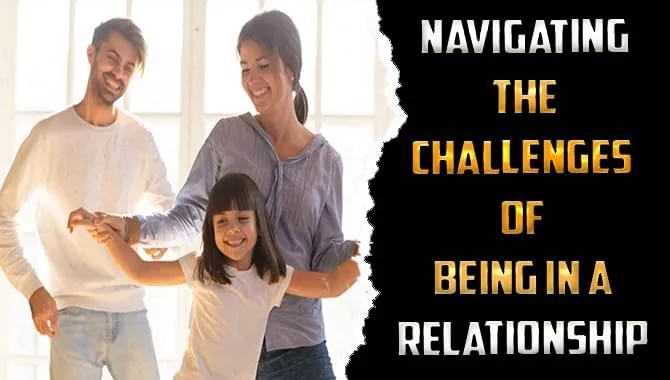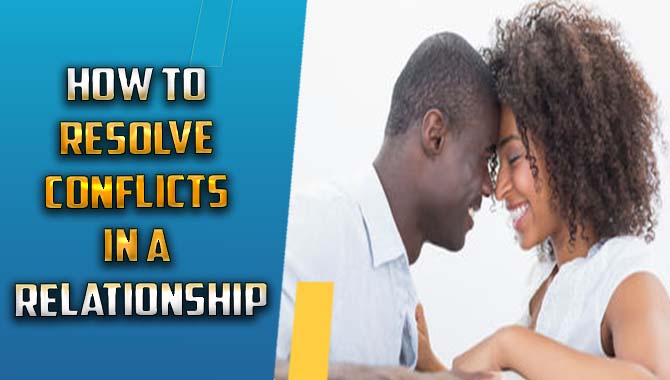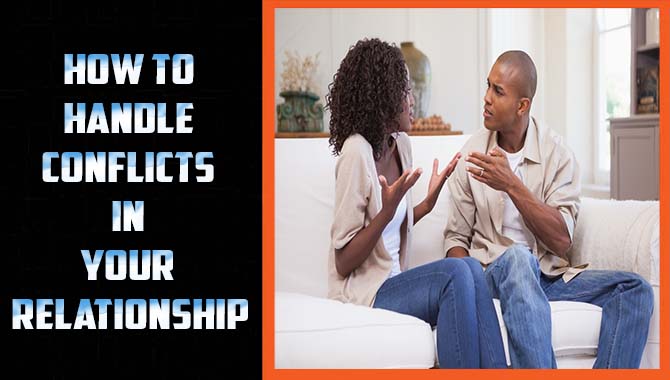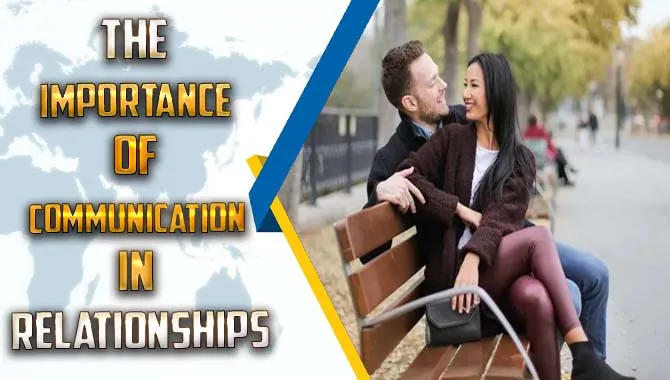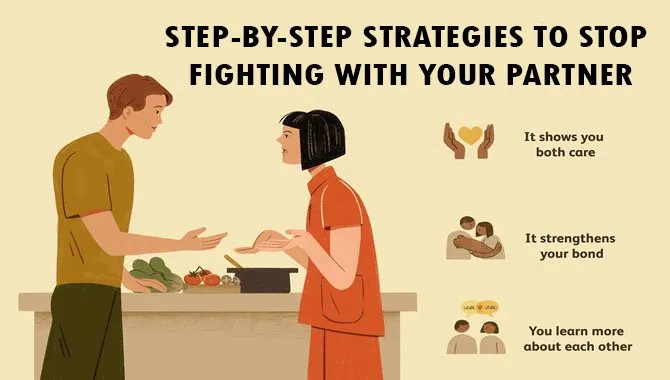The best way to navigate conflict and disagreements in relationships is to communicate openly and honestly with each other.
Conflict and disagreements are inevitable in any relationship. While they can be difficult to navigate, there are some tips that can help make the process a little easier.
First, it’s important to remember that conflict is not necessarily a bad thing. In fact, it can be a healthy part of any relationship. It’s only when conflict is not managed effectively that it can become a problem.
One of the most important things to do when conflict arises is to communicate openly and honestly with your partner.
It’s important to express how you’re feeling and to listen to what your partner has to say. Try to avoid getting defensive or attacking your partner.
It’s also important to be willing to compromise. In any relationship, there will be times when each person has to give a little bit. It’s not always easy, but it’s important to remember that relationships are a two-way street.
Finally, it’s important to take some time to cool down after a disagreement. This can be difficult, but it’s important to remember that most conflicts can be resolved if both parties are willing to work together.
If you keep these things in mind, you’ll be better equipped to navigate conflict and disagreements in your relationships.
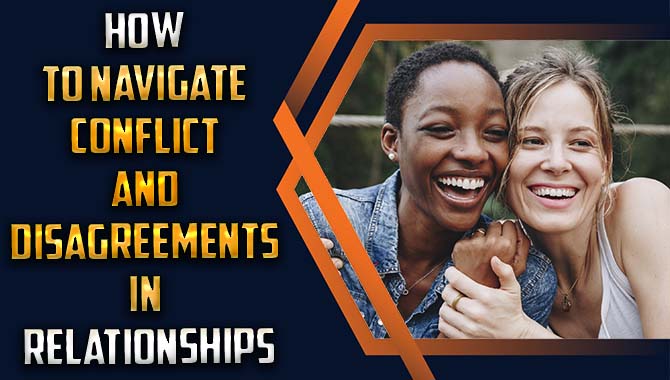
How Do You Deal With Conflict In Your Relationships?

Acknowledge the conflict, talk about how you’re feeling, and try to come to a resolution. Conflict is a normal part of any close relationship. It can be caused by many things, including differences in opinions, personality clashes, and miscommunication.
The important thing is to not let conflict ruin your relationship. Here are some tips on how to deal with conflict in your relationships:
- Communicate openly and honestly with your partner. This means being willing to talk about what is bothering you, and listening to what your partner has to say.
- Try to see things from your partner’s perspective. It can be easy to get caught up in your own point of view, but it’s important to try to understand where your partner is coming from.
- Avoid getting defensive. It’s important to remember that conflict is not a personal attack.
- Be willing to compromise. This means being willing to give and take, and to find a solution that works for both of you.
- Seek professional help if you’re having difficulty resolving conflict on your own. A therapist can help you and your partner communicate more effectively and work through your differences.
If you follow these tips, you can resolve conflict in a healthy way that will strengthen your relationship.
How Do You Know When A Disagreement Is Becoming A Conflict?
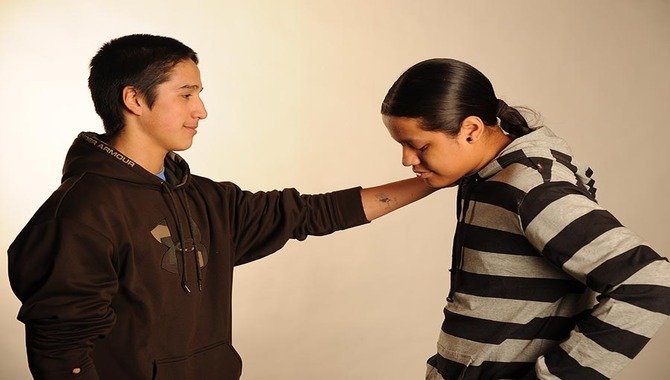
When a disagreement is becoming a conflict, it is usually characterized by a increase in emotion and a decrease in rational discussion.
When is a disagreement no longer just a disagreement, but a conflict? It can be difficult to tell, but there are usually warning signs.
If you find yourself and the other person getting increasingly frustrated and emotional, it’s likely that the disagreement has become a conflict.
Another sign that a disagreement has turned into a conflict is when you start to feel like you’re not being heard or understood, and you’re not making progress in resolving the issue.
Conflict can arise from different sources. It could be a disagreement over a project at work, or a disagreement with a friend or family member about a particular issue.
Whatever the source of the conflict, it’s important to try to resolve it in a constructive way.
One way to do this is to use Istatements, which can help de-escalate the situation. For example, you might say something like, I feel like we’re not making any progress on this issue, and I’m getting frustrated.
This can help the other person understand how you’re feeling, and it can also help to take the focus off of who is right or wrong.
It’s also important to try to stay calm and avoid getting defensive. This can be difficult, but it’s important to remember that the goal is to resolve the conflict, not to win an argument.
If you find yourself in a conflict, there are a few things you can do to try to resolve it. First, try to identify the root of the problem.
What Is It That You’re Really Disagreeing About?
Once you’ve identified the problem, you can start to brainstorm possible solutions. It’s important to come up with a few different options, so that you can find a resolution that works for both parties.
If you’re having trouble resolving the conflict on your own, you may need to seek help from a mediator or counselor. This can be an effective way to get both sides to listen to each other and to find a resolution that works for everyone.
What Are Some Effective Strategies For Resolving Conflict In Relationships?

Some effective strategies for resolving conflict in relationships are: listening to each other, trying to see each other’s perspective, and compromising.
Conflict is a normal part of any close relationship. Couples will inevitably have disagreements from time to time. However, it’s how you handle those disagreements that can make or break your relationship.
There are some effective strategies you can use to resolve conflict in your relationship:
- Communicate openly and honestly with each other.
- Listen to each other’s point of view.
- Try to see things from your partner’s perspective.
- Avoid making assumptions about what your partner is thinking or feeling.
- Express your needs and wants clearly.
- Be willing to compromise.
- Seek professional help if you feel like you’re not able to resolve your conflict on your own.
Let’s say you and your partner have been arguing about money lately. You’re both working hard to save up for a house and you’re both feeling a little stressed about it.
One night, you come home from work and your partner is watching TV. You ask them how their day was and they respond with a short answer. You can tell they’re not in the mood to talk.
You start to feel angry and frustrated. You had a long day at work and you really wanted to talk to your partner about it.
Instead of getting into another argument, you decide to take a deep breath and use some of the conflict resolution strategies we mentioned above.
You sit down next to your partner and say, “I know we’ve been arguing a lot lately about money. I just wanted to talk to you about my day. I’m feeling really stressed and I need to talk to you about it.”
Your partner puts down the remote and turns to look at you. They listen to you as you talk about your day and how you’re feeling. They offer some words of support and comfort.
You both talk about your stresses and worries. You come up with a plan to help ease some of the financial pressure you’re both feeling.
By using some effective conflict resolution strategies, you’re able to resolve your disagreement and come up with a plan to help ease your stress.
What Are Some Common Causes Of Conflict In Relationships?

People in relationships often conflict over things like money, sex, in-laws, or work.
Conflict in relationships is normal. In fact, it’s often a sign that you and your partner are healthy and working through things together.
That said, there are some common causes of conflict that tend to crop up more often than others. Here are four of the most common:
1. Money

Money is one of the most common sources of conflict in relationships. Whether it’s disagreements about how to spend it, arguments over who should pay for what, or simply feeling like you’re not on the same page financially, money can be a big source of stress in a relationship.
2. Sex

Sex is another common source of conflict in relationships. Whether it’s mismatched libidos, different levels of desire, or different sexual needs and preferences, disagreements about sex are fairly common.
3. Time
Time is a precious commodity, and it’s often one of the biggest sources of conflict in relationships.
Whether it’s feeling like you don’t have enough time for each other, disagreements about how to spend your free time, or juggling different schedules, time can be a big source of stress in a relationship.
4. Household Chores

Household chores are often a source of conflict in relationships. Whether it’s feeling like you’re doing more than your fair share, disagreements about who should do what, or simply different standards for cleanliness, household chores can be a big source of stress in a relationship.
While conflict in relationships is normal, there are some things you can do to try to reduce the amount of conflict you experience.
One of the best things you can do is to communicate openly and honestly with your partner. If you’re feeling stressed about something, talk to them about it. Chances are, they’re feeling the same way.
Another thing you can do is to try to be more understanding and flexible. If your partner is having a bad day, try to be understanding. If they want to do something that you’re not particularly interested in, try to be flexible.
The more understanding and flexible you can be, the easier it will be to get through conflicts when they do arise.
Finally, remember that conflict is normal. It’s not necessarily a bad thing. It’s often a sign that you and your partner are working through things together. So, try to keep that in mind next time you find yourself in the midst of a disagreement.
FAQs
1.How Can You Prevent Conflict In Your Relationships?
Ans: Conflict in relationships is inevitable. However, there are some things you can do to prevent or resolve conflict in a healthy way:
- Communicate openly, honestly, and directly with your partner.
- Avoid assumptions and communicate your needs and expectations clearly.
- Be willing to compromise and find creative solutions that work for both of you.
- Seek professional help if you feel like you are not able to resolve conflict on your own.
2.How Do You Know When A Relationship Is No Longer Worth Fighting For?
Ans: There is no definitive answer to this question, as it depends on the situation and the people involved.
However, some signs that a relationship may be no longer worth fighting for include feeling consistently unhappy, feeling like you are not being heard or valued, or feeling like the relationship is damaging your self-esteem.
If you are unsure whether or not a relationship is worth fighting for, it may be helpful to consult with a therapist or counselor.
3.What Are The Consequences Of Unresolved Conflict In Relationships?
Ans: Conflict is a normal and necessary part of any relationship. However, if conflict is not resolved in a healthy way, it can lead to a number of negative consequences.
These can include feeling like you’re not being heard or valued, feeling resentful or angry, and feeling like the relationship is stuck.
Unresolved conflict can also lead to a breakdown in communication, which can make it difficult to work together on solving problems. In extreme cases, unresolved conflict can lead to violence.
4.How Can You Tell If You’re Resolving Conflict In A Healthy Way?
Ans: There are a few things to consider when trying to determine whether you are resolving conflict in a healthy way.
One is whether you are able to openly communicate with the other person involved in the conflict. This means being able to share your feelings and thoughts honestly without feeling like you have to hold back.
It also includes being able to listen to the other person’s perspective without getting defensive.
Another thing to consider is whether you are able to come to a resolution that is fair and reasonable for both parties.
This means that you are not trying to “win” the conflict or get the upper hand, but rather finding a solution that works for everyone involved.
If you are able to communicate openly and find a resolution that is fair, then it is likely that you are resolving conflict in a healthy way.
Conclusion
The most important thing to remember when navigating conflict and disagreements in relationships is to always communicate openly, honestly, and respectfully.
It is also important to be willing to compromise and to find creative solutions that work for both parties involved.
By following these guidelines, you can ensure that conflict and disagreements are handled in a way that is positive and constructive for both parties involved.
If you still have any questions about how to navigate conflict and disagreements in relationships, feel free to comment below.


